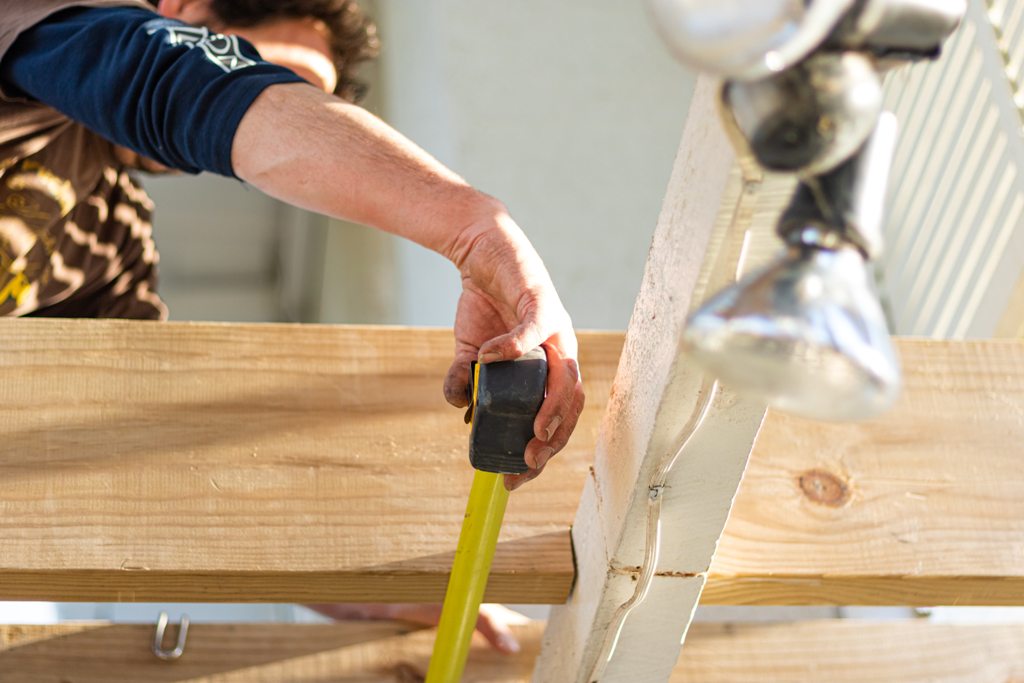
Do Contractors Need Insurance In Ontario?
When it comes to trades and contractors insurance in Ontario there are a lot of misconceptions about what is required by law and what additional coverage is available. The term contractor and tradesman also encompasses such a large number of professions it can be difficult to generalize all of them. Plumbers, electricians, landscapers and carpenters all fall into the same category but may require very different insurance coverage. Let’s explore what type of insurance is required by law and what additional coverage options may be beneficial.
Commercial General Liability Insurance
In order to operate a business in Ontario you are required by law to carry commercial general liability insurance. Often times with construction or trade jobs you will be required to show a certificate of insurance or proof of insurance. Without a commercial general liability policy you will not be able to request a certificate of insurance. This contractors general liability insurance protects yourself and your business from potential third party bodily injury or property damage claims.
Imagine you are a plumber and you are contracted to install new pipes in a bathroom. You install them poorly and now your client has a flood in their home. You would be on the hook for any damages yourself if you did not have a proper liability policy in place.
Can I Get A Certificate Of Insurance For One Specific Job
We get questions like this from time to time as contractors do not always have steady work or jobs. Unfortunately the answer is no. Because you require a commercial general liability policy to receive a certificate of insurance you would need that policy in place. These policies are typically a minimum of 12 months long and you are charged a cancellation fee to cancel the policy before the renewal. This is done intentionally to deter contractors from taking out a policy only when they have a job. There are many reasons why this is not a good idea as a contractor and can actually cost you and your company.
For starters, you likely won’t save any money if you are constantly cancelling and then getting a new policy set up for every job. The other issue is things can still happen to you or your business in between jobs. For instance you are an electrician and have completed a job and now cancel your policy. 6 months later a fire starts in the home you work on and it is determined there was faulty wiring. You would need proper liability insurance in place to protect you from a potential lawsuit.
Optional Contractors Coverage Not Required By Law
The general liability is required to operate your business, however there are many coverage options that may also be beneficial to have on your contractors insurance policy.
Tool Floater Insurance
A tool floater is used to cover your tools if they are lost or stolen. Tools are typically considered items that are worth $1000 or less. This can be things like drills or saws for a contractor, or weed whackers and push lawn mowers for landscapers. Imagine you have $15,000 worth of tools stored in a cargo trailer and someone breaks in and steals everything. Without Tool Floater Insurance Coverage you would have to purchase new tools out of your own pocket.
Equipment Floater Insurance
Equipment Floater Insurance is similar to Tool Floater Insurance only it is intended for high value equipment that is worth more than $1,000. This could be things like a riding lawn mower, a generator, forklift or skid steer. Typically with expensive equipment it is a good idea to talk to your broker about itemizing or scheduling it on your policy. This way if they are stolen or damaged you have protection and will not need to pay out of pocket to replace.
Installation Floater Coverage
An Installation Floater is designed to cover property or materials that are used for a job site before they are installed. This could be anything from lumber, to fixtures, to a furnace. This coverage protects these items from the time they are in your possession to the time of installation. Imagine you are installing a brand new granite counter top in a kitchen and one the way to the job site you hit a pot hole and the counter top cracks and is now unusable. Having an installation floater on your policy will cover the costs to replace that. Another example is you have lumber delivered to a job site and you leave it overnight. The next day you show up and it is all gone (because we know lumber is now almost as valuable as gold), you would need to have an installation floater on your policy to cover that.
Does My Vehicle Need Commercial Auto Insurance?
If you are a contractor chances are your vehicle will need to be insured under a commercial auto insurance policy. A personal lines auto insurance policy may leave you or your vehicle under insured in the event of a claim. Almost all personal auto insurance policies exclude business use activities, which means you would likely not have coverage if you get into an accident in your vehicle while using it for work. This does not apply if you use your vehicle to commute to your work.
For most contractors you use your vehicle to transport materials or equipment regularly and you also may regularly tow a trailer used to carry supplies. If you do these regularly as part of your business you will need a commercial auto policy. Not to mention your employees may borrow or use your vehicles at time. A commercial auto insurance policy will pay for the costs of accidents if an employee is driving and causes damage.
Fun Fact: If you use a commercial trailer for your business you will need to add the trailer to your commercial auto insurance policy in order to have coverage for the trailer and extend liability to the trailer while towing it. On a personal auto insurance policy, if you do not use a trailer regularly, your liability automatically extends to the trailer from your auto insurance policy while you are towing it.
One thought on Do Contractors Need Insurance In Ontario?
Leave a Reply
You Might Want to Read
November 8, 2023
Meet the Dougallers: Conor Hache
November 2, 2023
Welcome M.B. Kouri Insurance Brokers to the McDougall Insurance Team!
October 31, 2023
Why You Should Get Homeowners Builders Risk Insurance




Paul Bis
I am a homeowner requiring a contractor to do some drywall taping and mudding in one large room in my house. The contractor (incorporated) that I am considering does not have commercial general liability insurance but does have WSIB (verified). I wrote the following into a yet unsigned contract: “The Contractor will take responsibility and pay for damages for personal injury or property damage by reason of anything done or not done by the Contractor, its employees, or agents, in connection with the performance of this Contract.”
Is it an unwise decision to hire this contractor?
Thank you.
McDougall Insurance
It is more unwise for the contractor to not carry a commercial policy. If something were to go wrong and you attempt to sue the contractor they would have no coverage and would have to pay damages out of pocket. Your not always able to recover in a lawsuit if there assets are not enough to cover the damages. A typical contractor policy is roughly $1,000/year for a general handyman/contractor.